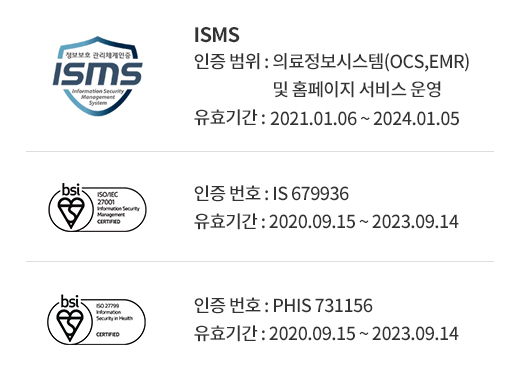Travel Checklist
Once your appointment at International Healthcare Center of Seoul National University Bundang Hospital confirmed, we will send you a packet of information you need to know before traveling to the Republic of Korea.
General Instruction

- Personal documents such as ID card, passport and visa. Check if your passport is valid and if you need a visa to travel to the destination country.
- Credit/debit card and some additional cash in the correct local currency. Decide how you will finance your medical payment, such as cash or credit card, and make sure additional cash in the local currency. Call your bank or card insurer to forewarn them that you may process a large payment abroad. This is to prevent banks from treating the transaction as suspicious and blocking your account.
- Medical records, including current diagnosis, films (X-ray, MRI, CT scan, ultrasound), biopsy results and your contact information.
- Any type of information regarding any chronic diseases that you may have.
- Bring daily medication, in original packaging if any, or the most recent prescription note by your doctor. It is recommended that herbal supplements, and vitamins, especially vitamin E be stopped before any procedures as recommended by your doctor. If you are taking blood thinners such as antiplatelet and anticoagulants listed below, you have to consult with your doctor or follow instruction from IHC of SNUBH especially when you are scheduled for surgeries or invasive procedures. (contact IHC coordinator if you have any concern regarding medication prior to your travel)
- Antiplatelet agents: aspirin, clopidogrel, ticagrelor, prasugrel, ticlopidine, cilostazol
- Anticoagulants: warfarin, dabigatran, apixaban, rivaroxaban, edoxaban
Traveling by Air
If you have the below conditions, please check with your doctor at home country to see when it is safe for you to travel by airplane.
Patients suspected with emerging infectious diseases with having fever accompanied by respiratory symptoms, such as COVID-19 or other diseases will be cared for and treated in the isolation ward. See attached files for more details.
- Recent heart attack or stroke.
- Recent surgical history, especially stomach, brain, eye, or orthopedic (bone and joint) surgery.
- Implanted cardiac device such as pacemakers, cardiac resynchronization therapy (CRT) devices and implantable cardioverter defibrillators (ICD); Don’t forget to carry your personal device identification card with you at all times.
- If you have a higher risk of developing deep vein thrombosis, your doctor can help you work out what measures you may need to take prior to flying. This may include graduated compression stockings, aspirin, or anticoagulants; During a long-distance flight of 4 hours or longer, deep vein thrombosis can occur as a result of inactivity. Make sure you get up and walk about regularly when permitted by the staff on the aircraft. Bend and stretch your legs and feet at regular intervals to encourage your circulation.
- If you will need oxygen during the flight, this must be requested in advance. A Medical Information Form, stating your current clinical condition and the reason for oxygen requirement, must be filled out and submitted to the airline office 1 week prior to departure.
- Flu-like symptoms with or without tuberculosis like prolonged cough, weight loss, night sweat, fatigue, fever, and chest pain for more than 2 weeks.
- More than 36 weeks of pregnancy (or 32 weeks if you are carrying twins, triplets, etc.).
- Suffering from the below signs and symptoms.
- - Any disease that you can easily spread to other people.
- - A fever of 100 degrees Fahrenheit (38 degrees Celsius) or greater.
- - Chest pain.
- - Difficulty in breathing.
- - Severe sinus, ear, or nose infections.
- - Bruising or bleeding without previous injury.
- - Psychotic illness except when fully controlled.
Patients suspected with emerging infectious diseases with having fever accompanied by respiratory symptoms, such as COVID-19 or other diseases will be cared for and treated in the isolation ward. See attached files for more details.






